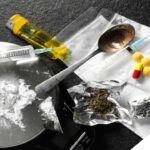This article is written by Atishay Jain, a former UPSC aspirant and a core member of the ApniLaw team. With a strong focus on criminal and regulatory law, the article offers clear insights into complex legislations like the Narcotic Drugs and Psychotropic Substances (NDPS) Act. For any personal queries or suggestions, feel free to reach out to us through our official channel.
What Is Section 8 Of NDPS Act
- No one can cultivate coca plants or gather any part of them.
- Cultivation of opium poppy or cannabis plants is banned.
- No one can produce, possess, sell, or transport narcotic drugs or psychotropic substances unless for medical or scientific purposes.
- Such activities must follow the Act’s rules and require proper licenses or permits.
- The Central Government will notify the date from which ganja-related restrictions take effect.
- Export of poppy straw for decorative use is allowed.
How Does The Central Government Regulate Substance Under Section 9 Of NDPS Act?
- The Central Government can regulate narcotic and psychotropic substances by rules.
- It can permit activities involving coca, opium poppy, poppy straw, and opium derivatives.
- Only the Central Government can allow cultivation of coca or opium poppy.
- It can permit production, sale, and transport of essential narcotic drugs.
- Rules can set licensing conditions for cultivation and manufacturing.
- Authorities can inspect, weigh, and classify opium at delivery.
- Government fixes the price for opium delivered by cultivators.
- Adulterated opium can be confiscated.
- Rules cover licensing, permit fees, and authorized ports for import/export.
How Does The State Government Regulate Substance Under Section 10 Of NDPS Act?
- State Governments can regulate the possession, transport, sale, and use of poppy straw (excluding non-lanced).
- They can allow cannabis cultivation and use (excluding charas).
- States can permit manufacture of medicinal opium and certain drugs.
- Rules govern possession and use of opium, manufactured drugs, and coca leaf.
- Registered addicts may manufacture and use prepared opium for personal use.
- States can set up warehouses for poppy straw.
- They can charge fees and regulate the storage, movement, or disposal of warehoused stock.
- The State Government will fix cultivation licence limits for cannabis from time to time.
- Only licensed cultivators approved by the State Government can grow cannabis.
- Cultivators must deliver all cannabis produced to State Government-authorized officers.
- The State Government will decide the price to be paid to cultivators for cannabis.
- Rules will define licence or permit formats, conditions, fees, and the approving authorities.
- These apply to all permitted activities listed under Section 10(1)(a)(i) to (vi).
Relevant Case Laws
- Deva Ram v. State of Rajasthan
The Supreme Court granted bail to an accused under Sections 8, 18, and 25 of the NDPS Act after six years of incarceration, noting the prolonged trial and the accused’s extended pre-trial detention. - Directorate of Revenue Intelligence v. Raj Kumar Arora & Ors. (2025)
The Supreme Court clarified that possessing psychotropic substances listed in the NDPS Act’s Schedule constitutes an offense under Section 8(c), even if not mentioned in the NDPS Rules. The Court emphasized that unauthorized dealings in such substances are punishable under the Act. - State of Rajasthan v. Gopal & Ors.
The Supreme Court held that an In-Charge Station House Officer (SHO) is competent to conduct searches under the NDPS Act in the absence of the designated SHO, provided they are authorized by the State Government. This ruling underscores the Central Government’s authority to delegate powers under Section 9. - Vijay Kumar v. State of Punjab (2025)
The Punjab & Haryana High Court ruled that the confiscation of a vehicle under the NDPS Act must follow due process as outlined in Section 63, independent of the trial’s outcome. The Court emphasized that procedural fairness and natural justice are paramount in such matters.
Conclusion
The NDPS Act bans all activities related to narcotic drugs and psychotropic substances. This includes cultivation, production, manufacture, possession, sale, purchase, transport, storage, use, and consumption. The law also prohibits import and export of these substances. These strict rules aim to stop drug abuse and illegal drug trafficking in India. Violating the NDPS Act leads to heavy penalties, including jail time and fines. This law helps protect public health and national safety by controlling dangerous drugs.










